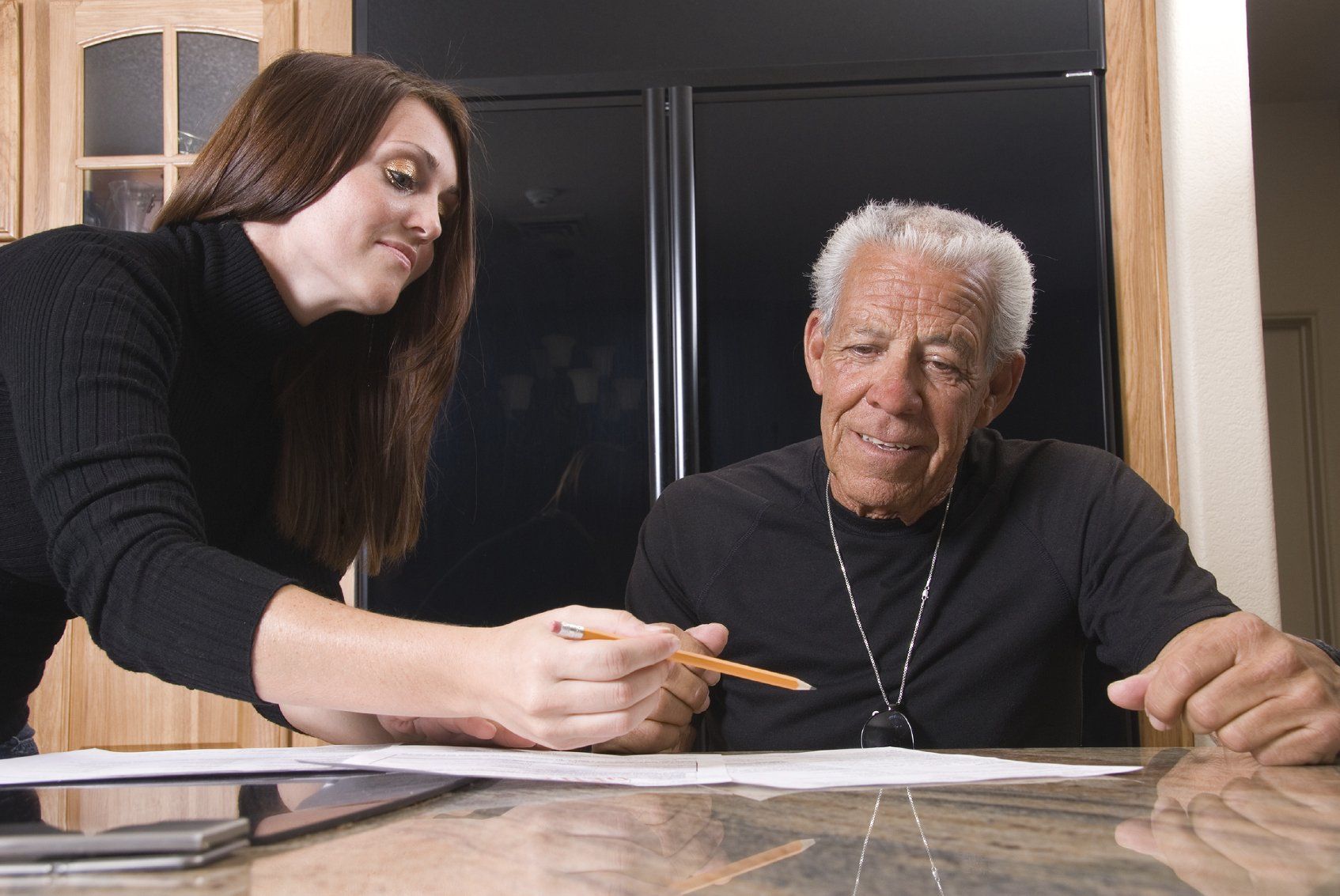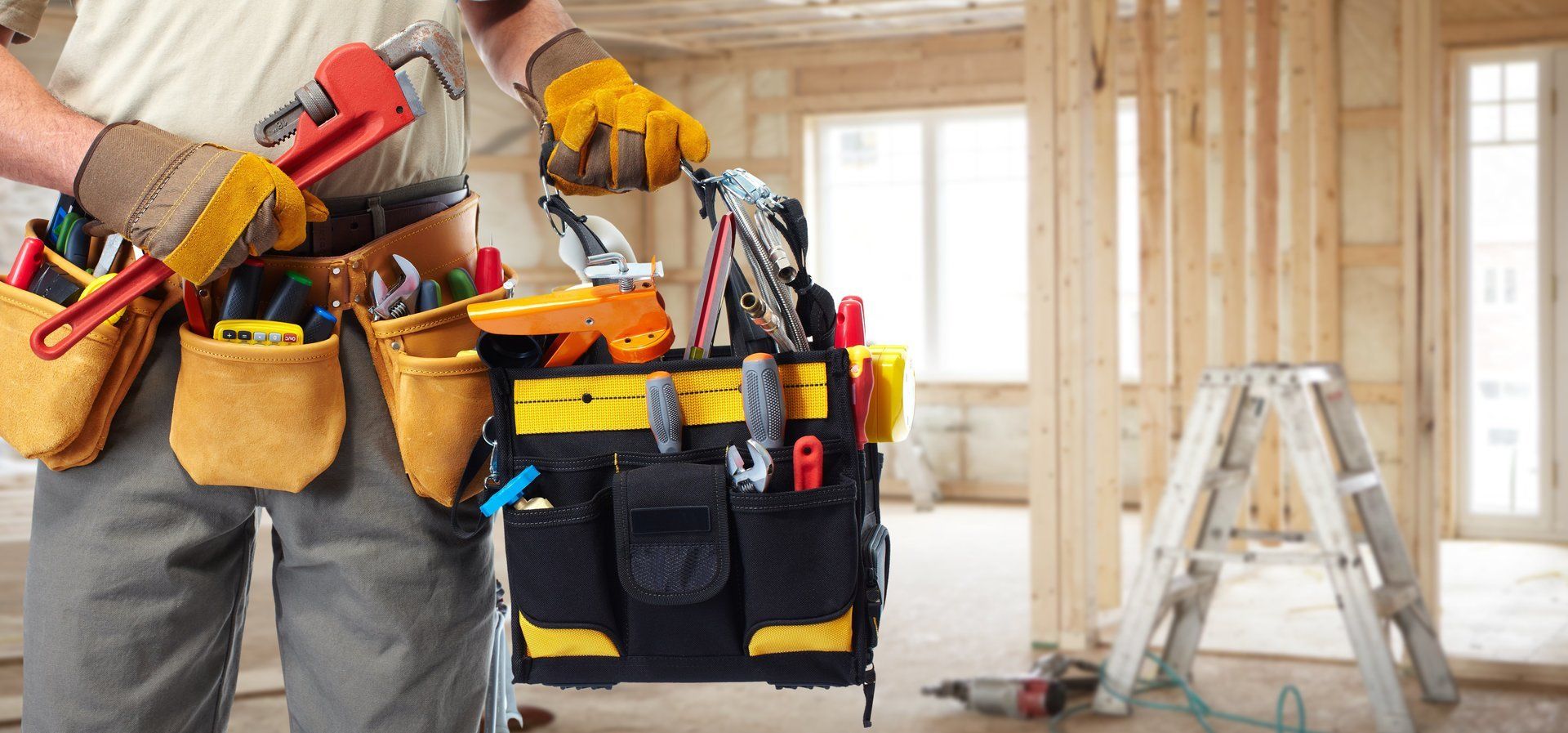14 Questions to Ask Before You Hire a General Contractor
When looking to hire a contractor for your building or remodeling project, you may feel a little overwhelmed and unsure of how to guarantee they are not only legit but also the best at what they do.
Do you remember playing the game 20 Questions as a kid? Hiring a contractor is similar. You have to use questions, deductive reasoning, creativity, and tact to ensure you are getting the most for your dollar (or couple hundred thousand of them).
First, how do you find the right contractor to interview?
How to find the right contractor
Whether you are hiring a remodeler for a residential or commercial property project, the first thing you want to consider is a contractor’s reputation.
- Do you know anyone who has hired them previously?
- What did previous clients say about their work and the value of it?
- Their reliability?
- Their communication and punctuality?
Having a friend or family member who can vouch for a contractor they have personally used is great, but you must check into their public reputation for yourself. This can easily be done online.
Once you have some confidence in their skills and competence, based on your investigation, it’s time to get on the phone and start interviewing.
When you first meet them, don’t hesitate to shoot the breeze a little bit.
It’s nice to know about a contractor’s family, their priorities, and what they like to do. Only spend a few minutes doing this though, as you want to be respectful of their time, and good contractors are typically very busy. Once you’ve broken the ice, get right into the questions.
A good contractor understands how important your property and projects are and knows that you will have lots of questions. If they won’t answer your questions, they are not your contractor. Run!
If they don’t show up for your appointment or interview, do not give them a second chance. If they are 30 minutes late, they had better have a good reason. If it’s acceptable to them to be late or not show up before you hire them, you can bet that this behavior will remain consistent or even get worse after you hire them.
When you meet a contractor, take note of their appearance and, if possible, the state of their vehicle. This can say a lot about a person’s organization and attention to detail. If there are fast food bags, empty water bottles, paperwork, and trash scattered everywhere, it seems likely that this is how your house is going to look if you choose to work with them.
It’s essential to thoroughly vet your contractor in the interviewing process.
What to look for during your search
If you aren’t careful about who you hire, it could cost you everything. Here are several tips to keep in mind for your initial search.
- Get multiple estimates. You want to make sure you initially get estimates from more than one contractor, preferably around three.
- Go local. If possible, local contractors are your best option because they will be more familiar with local building codes and will always be close by if you have to contact them for an emergency.
- Check for proper licensing. If unlicensed, they will not be able to pull necessary permits, which will mean that your buildings are not up to local building codes and will not pass inspections. Unfortunately, you would then be held financially responsible for the repairs to meet those codes. Licensing is essential!
- Check for warranties. Warranties are great for both parties because they protect the contractor from having to come back for multiple repairs over a long period, and also ensure the homeowners that the work of the contractor will not be shoddy or sub-par. You want a warranty in writing.
- Check their past work. Look them up on the Better Business Bureau to check their reputation. You want a contractor with more than five years of experience, preferably. Ask for a list of references from their previous projects and follow up with these. You can also check their reputation and reviews on social media platforms or Yelp.
- Utilize best payment practices. Don’t pay in cash or the full total upfront. Be wary of any contractor who demands either. An initial payment should be about a third of the estimated costs and should be given in the form of a check written to the company, not an individual.
Getting multiple estimates and carefully vetting your contractor may take some time, but at the end of the day, it is more than worth it for your peace of mind and your bank account.
Now that we’ve discussed a couple of tips to help you vet your contractor, let’s nail down some questions you will want to ask them.
Questions to ask during the interview
We have gathered a list of the best questions to ask a contractor during the interview process.
How many people work for you, and what is the structure of your company like?
This will tell you how large their organization is, which can be a good indication of how long they’ve been around and how well-established they are.
It can also tell you what type of support they have. Having administrative personnel who help manage project schedules and billing, a project manager, assistant managers, and other support will likely make it easier for you to get in touch with the company when you need to. You won’t have to worry about an individual being your single point of contact.
How long have you been running your own crew?
This question helps give you a better idea of how experienced they are at what they do and if they have a track record of being dependable over a long period.
You may want to ask them about turnover on the crew as well. If they have to fire their framer every other week, you may have a hard time getting that part of your renovation done.
Are you licensed?
Definitely make sure their licenses are up to date and they are registered with the state you’re in.
Are you insured?
This includes General Liability Insurance and Workers’ Compensation. There is only one right answer to this question. Once they hopefully say yes, ask to see a copy of their policy.
Will you be using subcontractors on this project?
Ideally, the contractor can do the entire project with just their own team, whether for a residential property or a commercial real estate property. This allows the general contractor to have more control over the timeline and the budget.
If they have to sub-contract specific parts of the project out, then they cannot control, for example, this plumber or that painter’s schedule.
Regardless, you need to make sure that each person conducting work is trained, licensed (if applicable), and insured. While subcontractors aren’t a red flag per se, they can create more work for you and also increase your timeline.
Have you ever had to declare bankruptcy or operated your company under a different name?
If they say yes, you will need to do a little more research to ensure they are not going to go bankrupt again. You also need to check on any previous companies as there is probably a reason they are not still in operation.
When you research and conduct interviews, it is not enough that they “pass the test.” You need to answer two questions: Are they a good person? And can you work with them?
Once you have a good idea of the contractor’s reputation and experience, you can start to figure out scheduling, timelines, communication, and organizational structure.
Have you ever had to deal with lawsuits?
Even though this question is delicate, you need to know the answer. This question consists of three parts.
- Have you ever been sued? A “yes” answer is not an immediate reason to cut off the interview then and there, but you’ll want to dig a little deeper to find out what the suit was about, how it turned out, and how this contractor handled or responded to it.
- Have you ever sued a client or filed a mechanics lien against a property? You need to understand the details. At the very least it will give you an indication of their transparency and character. You can always follow up with the public record.
- Has your company ever had serious accidents that caused hospitalizations or injuries? Again, it is okay if the answer is yes—accidents happen. What’s important is how the contractor dealt with the situation and what they are continuing to do to ensure it doesn’t happen again.
Will you agree to sign lien releases before I pay you?
This answer needs to be “yes.” If your contractor does not want to sign a lien release to be paid, for any reason at all, their intentions are probably not what they should be.
How often do you communicate with your customers?
You need to get a sense of how often they will communicate with you. Will you get a daily report of progress or a weekly one?
It’s important to ask them first, rather than leading them to the answer you want to hear. Their answer will quickly give you an understanding of their professionalism.
You could even offer to have them text you pictures of their progress in lieu of a daily call.
How do you clean up your job site?
Don’t lead on this question by saying, “Do you clean up your job site daily?” Instead, ask them what they do at the end of every job day.
If they give some kind of half-answer, then you might say, “Would it be an issue if I wanted my job sites cleaned up at the end of every day?” It’s important to see what they say to your request, and then make your hiring decision based upon how they respond.
If the job site is a mess, it’s a liability for you and also makes you look like a slob to passersby.
How many projects do you have going on right now?
If your contractor says they are juggling three jobs at once, they will likely not meet your deadlines.
Your next question should be, “How will you handle my job at the same time as those other three jobs?”
Your soft costs will start to eat up your profits every day if you have to wait for them as they juggle other jobs as well.
What would our contract look like?
A lot of contractors don’t even use contracts (believe it or not), so it’s important to have this conversation at the beginning.
It’s best to always draft the contract you use and ensure that everyone signs before work begins or any money is exchanged.
Not every contractor will be okay with this, but you need to have a lawyer review any contract before you sign it. If it is written by your contractor, it is to protect them, but not necessarily you.
Who would be at my house and when?
You need to ensure that no one is allowed access to your house if they have not had their background checked by the company.
Additionally, you want to ensure that there are only contractors working when you give them express permission and within the boundaries that you’ve laid out.
How and when would you like to be paid?
An upfront payment of 50% is not reasonable, no matter what they say. A fair amount to pay upfront is roughly 30% of the estimated costs. Make sure you both agree to and sign a predetermined payment schedule before the start of the job.
A good contractor has enough in reserve to cover expenses to get started but occasionally will need money for some materials. If this is the case, you can order the materials and have them delivered directly to you. This way, you have what you paid for.
You need to be able to work well with your contractor. At the end of the day (or project), you want this contractor to have respected your property; been open and honest; treated you fairly; and completed the job within budget, on time, and to your personal standards.
If you find that you need to report a problem contractor, the Federal Trade Commission’s “Consumer Information” webpage lists several options for you to do so.
However, you shouldn’t have to worry about having to report a contractor if you properly vet them in the first place.
Source: BiggerPockets Blog
Dusty Rhodes Properties is the Best Realtor in Myrtle Beach! We do everything in our power to help you find the home of your dreams. With experience, expertise, and passion, we are the perfect partner for you in Myrtle Beach, South Carolina. We love what we do and it shows. With more than 22 years of experience in the field, we know our industry like the back of our hands. There’s no challenge too big or too small, and we dedicate our utmost energy to every project we take on. We search thousands of the active and new listings from Aynor, Carolina Forest, Conway, Garden City Beach, Longs, Loris, Murrells Inlet, Myrtle Beach, North Myrtle Beach, Pawleys Island, and Surfside Beach real estate listings to find the hottest deals just for you!
Share





